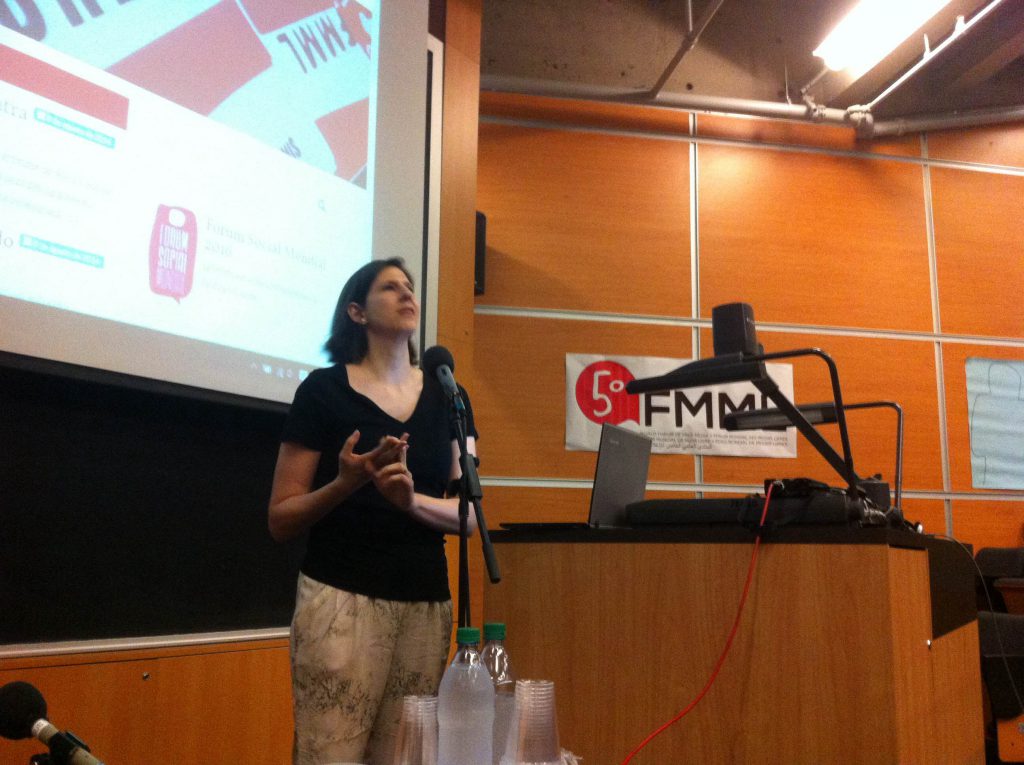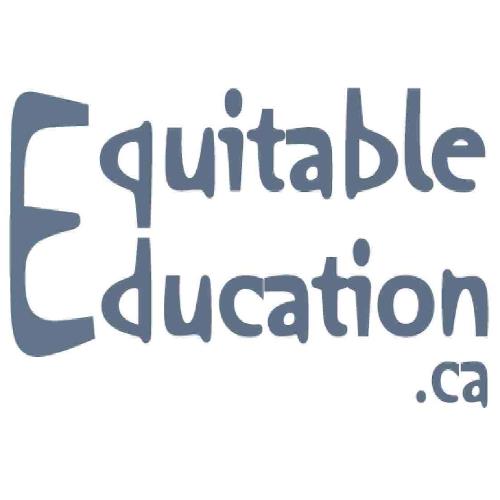Topics include ‘zero rating’ and net neutrality; state surveillance; public dissatisfaction with Facebook and creating alternatives; and how the internet, capitalism, communications and the link to broader struggles for rights, justice and humanity.

Anja Kovacs directs the Internet Democracy Project in Delhi, India, which works for an Internet that supports free speech, democracy and social justice in India and beyond.
Interview by Greg Macdougall of EquitableEducation.ca, from Monday August 8th, the first full day of the World Forum on Free Media in Montreal, in conjunciton with the World Social Forum happening Aug 9-14.
Audio – 24min – direct link to mp3 file
Licensed for reuse/rebroadcast under Creative Commons Attribution-NonCommercial 3.0
Key chronology / issues discussed in interview:
- 0:45 – Begins by talking about the net neutrality issue of ‘zero rating’ internet access packages – proposals for which have been a major issue of debate in India, whereby companies offer people packages (paid, or possibly free) of certain websites and those people’s intenet access then consists solely of those packaged sites, with additional costs to access any websites not in the package. This may seem foreign to North American internet users, but zero rating was part of the United States net neutrality debate as well, although to a much lesser degree.
- 3:30 – The net neutrality conversation also goes into the role of capitalism and ‘political economy’ and differences in consciousnesses / awareness of such issues between India and elsewhere, versus North America: “In general when you talk about rights issues, there is a much stronger sense of how your ability to enjoy rights, to exercise them, is always underpinned by political economy.”
- 10:00 – Issues around the internet and capitalism, neoliberal pressures in India and other developing coutnries tying in to state surveillance and privacy issues
- 13:00 – The World Forum on Free Media and importance of connecting around issues of rights, the Internet and communications in general – includes an explanation of what is meant by political economy.
- 14:50 – Concerns around privacy and surveillance: do people really care? Looking at the complexities of the issue, especially with respect to social media, especially Facebook – and also, what do we do about it, with the dominance that such corporations have through their position in so many peoples lives?
- 20:50 – Relating the issues around Internet, communications and free media with a “sense of despondency with where activism is at right now – not things that come up spontaneously, [but] people who have been organizing over long periods of time struggling to build connections in a world where increasingly global capital is back on the rise, and culturally – as people here have been pointing out – there is also more and more across the world a move to the right: that means there is a set of values that is dominant that’s not really hospitable to the activists that are here and the work that they do. And I think that’s maybe a question that’s just as important: How do you win people back to that language of solidarity, justice, and a different humanity to respect people in their totality, including their difference? I think that might be a bigger battle.”
- 24:00 More around the issue of growing dissatisfaction with the power that companies like Facebook and Google have.
—
RELATED CONTENT FROM GREG MACDOUGALL / EQUITABLEEDUCATION.CA
Book review: McChesney’s “Digital Disconnect” examines corporate control of our digital communications future
—
 Interdependent media & in-person learning opportunities for those who are inspired to be part of movements for social justice.
Interdependent media & in-person learning opportunities for those who are inspired to be part of movements for social justice.
Latest comments